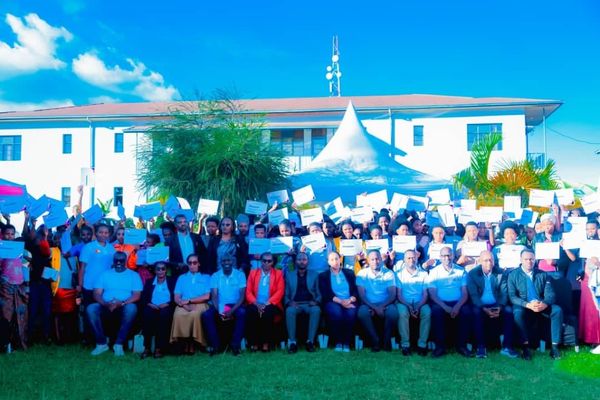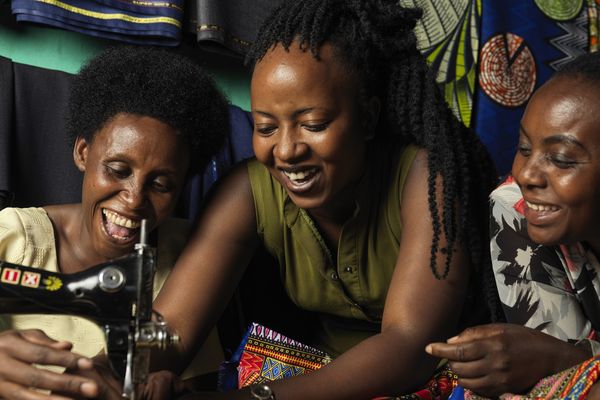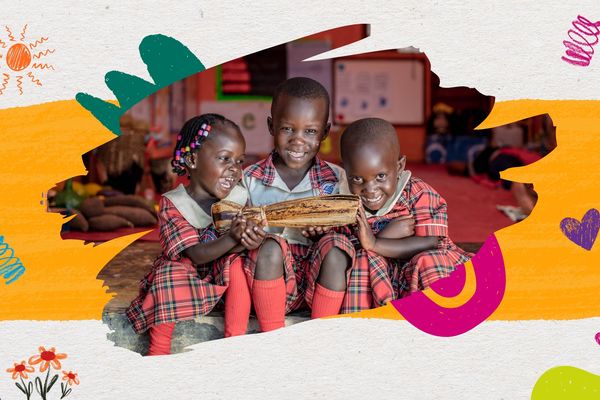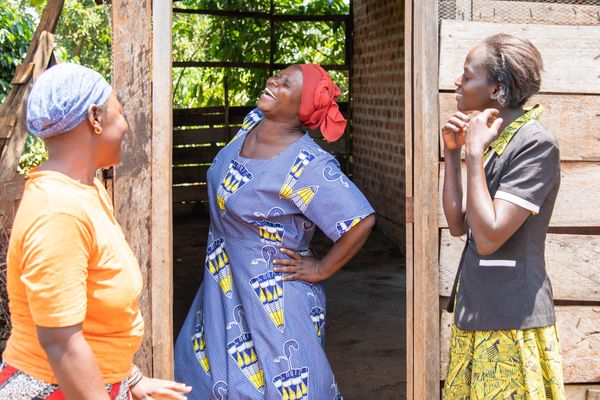Celebrating the first cohort of girls and young women in Rwanda’s AIM clubs
Date: 2 May 2025
On 16 April, BRAC Rwanda celebrated a milestone. Girls and young women from the first cohort of the AIM clubs completed one year of the youth empowerment curriculum. The ceremony, held in Nyanza, brought together a range of government stakeholders, including the representative of the Governor.
The ceremony welcomed the outgoing cohort and their guardians, as well as BRAC staff who spearheaded the programme. Songs and dance performances added a festive spirit, after which certificates were awarded to the participants.
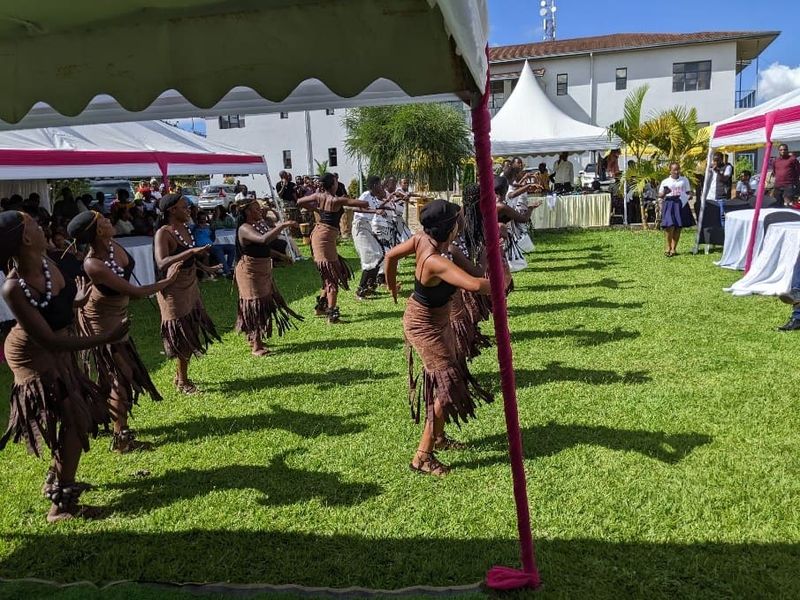
AIM clubs, based on BRAC’s proven youth empowerment model, serve as a safe space for adolescent girls and young women. In the first year at the clubs, participants meet several times each week with a peer mentor, who supports them as they socialise, learn life skills, and participate in financial literacy, business, and skills training.
The ceremony also marked a new journey for the outgoing cohort: A total of 682 girls and young women will now launch their own livelihood activities – the first steps in building their career. These include livestock rearing, agricultural production, and technology-driven services, such as mobile money or Irembo agents, supporting access to government services. They also received a conditional cash transfer as a push to grow their livelihoods and move toward economic self-reliance, one of the key goals of the AIM programme.
The Mastercard Foundation Accelerating Impact for Young Women (AIM) in partnership with BRAC is equipping 1.2 million adolescent girls and young women, with age-appropriate entrepreneurship, employability, and life-skills training, as well as the tools to start and scale their own businesses. The five-year programme applies BRAC’s proven model using microfinance, youth empowerment, agriculture and skills development to improve lives and livelihoods. It currently operates in seven African countries: Sierra Leone, Liberia, Uganda, Tanzania, Rwanda, Ghana, and Kenya.
At the event, participants took to the stage to share moving testimonies. Nyirangorore Alvera shared how she used her cash transfer to buy goats. For the first time, owning her own livestock gave her the means to improve the quality of life, bringing hope and stability for her family. Mushimiyimana Chantal spoke on behalf of her daughter, a participant with a disability. She shared her daughter’s journey, as she tried and failed in a number of ventures, before settling on selling milk from her home. She shared how her daughter, through the club, learned not only practical skills like managing ledgers and tracking savings, but also deeper lessons in emotional strength and resilience.
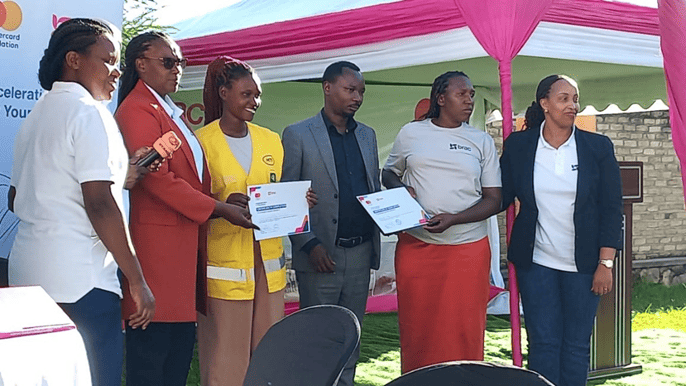
Diane Umutoni, Head of Programmes, BRAC Rwanda, encouraged community leaders present to continue supporting the participants.
Jean Baptiste Nkurunziza, Programme Manager of AIM, highlighted how the programme can serve as a model for other countries and governments. The Executive Secretary of Rusatira Sector highlighted how the self-reliance of girls and women sparks ripple effects that uplift the entire community.
The Governor’s representative applauded the participants, pointing out that Rwanda’s poverty rate is on a decline, and programmes like AIM play a defining role.
The AIM programme was launched in the Huye and Nyanza districts in the southern province of Rwanda, in July 2023, with 10 clubs and 733 girls and young women. Since then, 2,930 participants have enrolled in 30 AIM clubs as part of the second cohort.
The village savings and loan associations (VSLA) are a key part of the programme where girls and young women come together to save and avail small loans from pooled funding to invest or meet emergency needs. As of now, 2,022 girls and young women in Rwanda are contributing to a total of 91 VSLAs, with a total of USD 8,269 collected in savings and USD 6,446 taken out in loans.
The completion of the first AIM cohort stands as a testament to the power of investing in girls and young women. As they step into new opportunities with skills, confidence, and hope, they are not only transforming their own lives but also charting a course toward sustainable development and gender equity across the region.
